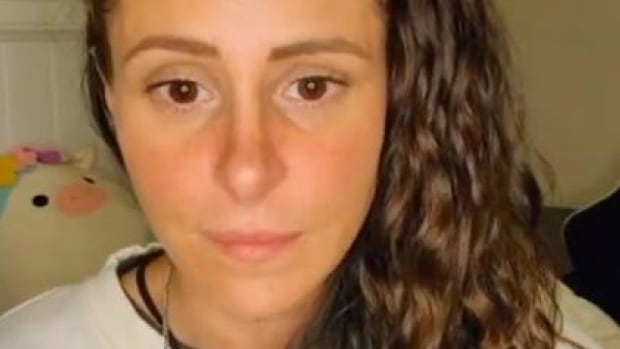
A dog owner being sued by an animal hospital in Surrey, B.C., over a series of critical TikTok videos has filed a defence in court, arguing her posts aren’t defamatory because her story about the way her dog was treated is true.
Victoria Veira, 36, said her viral videos about Surrey Animal Hospital accurately explained how the clinic treated her dog this spring.
She said the clinic is the one attacking her reputation, not the other way around.
“At no time did Ms. Veira make any false, malicious, or defamatory statements about [Surrey Animal Hospital],” read the response to civil claim filed in B.C. Supreme Court.
“By filing [the lawsuit] … Surrey Animal Hospital and its counsel, with an improper motive, intentionally and strategically planned to damage the reputation of Ms. Veira in the eyes of the public by making false claims against her and without giving Ms. Veira any opportunity to provide her version of facts to the public.”
Veira posted a series of videos on TikTok this spring claiming Surrey Animal Hospital mistreated Charlie, her Akita mix, after she took him to be neutered in March. She said he developed an infection that was only cured when she took him to a different vet in the city.
Her videos showed the clinic’s one-star reviews on Google, its history of professional discipline and a three-part series explaining the treatment she said her dog received. The most viewed video showed part of an argument between Veira and a staff member.
Together the clips, which are still available to view online, have been watched more than 900,000 times.
The clinic filed its lawsuit claiming defamation in August.
It said Charlie’s post-surgery infection was Veira’s fault because she didn’t use a stiff doughnut cone to prevent Charlie from licking the wound. Veira admitted Charlie had been able to reach the incision around an inflatable collar but said she quickly switched it for a solid cone.
‘Slaughterhouse’ comment
The clinic’s lawyers said Veira posted her TikToks with “reckless indifference” to the facts solely in order to ruin the vet’s reputation, and took issue with one video in particular.
“I brought my dog to a slaughterhouse. OK, I didn’t say that, that’s mean, I’ll take that back, but I took him to a bad vet, that’s for sure,” Veira said in the video.
In her response, Veira said the remark was taken out of context and that she corrected herself seconds later. She also said she’s since heard from several other people, including a former clinic employee, who had negative experiences at the clinic.
“Ms. Veira’s only intention in posting the TikTok videos was to lawfully and truthfully share her personal experience dealing with [Surrey Animal Hospital] and her subsequent research into [the clinic]’s long history of negative reviews by individuals with similar poor experiences,” her response read.

Veira said her comments are also protected by the “fair comment” defence: under freedom of expression, customers can post reviews of a business on sites like TikTok so long as their story is true and their comments based on facts.
She said the entire claim should be thrown out.
TikTok’s viral potential
Experts described the clinic’s claim as another in a growing trend of defamation lawsuit involving statements made on social media platforms like Instagram, Facebook and Twitter.
TikTok claims are rarer, but experts said a negative review on the platform could be more likely to provoke a lawsuit because of its intuitive algorithm and potentially extremely viral nature: one post can spread to millions of people overnight, especially if the video is picked up by the programmed “For You” page.
Whether Veira is responsible for her story spreading like wildfire has come up in the legal battle.
The vet said Veira knew TikTok has an immense reach and leveraged the platform with multiple posts to “maximize” damage to the clinic’s reputation.
Veira responded by saying she uses TikTok regularly and has “no control” over which videos might be more popular than others.
If the civil case is not settled out of court, it will continue to trial.